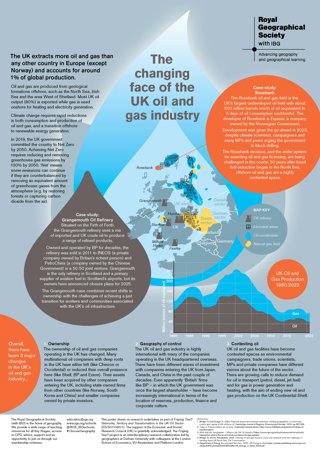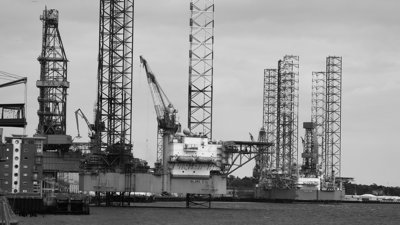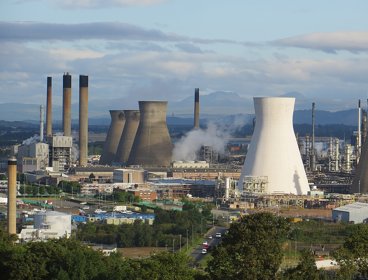'We would support a tighter limit on (oil and gas) production, with stringent tests and a presumption against exploration.’
'We see a role for policy to limit extraction of oil and gas on climate grounds, alongside policies to reduce the burning of these fuels.'
Climate Change Committee (2022), the UK’s independent advisor on tackling climate change.
The UK's oil and gas industry is undergoing significant transformations and challenges in response to mounting pressure in addressing climate change and transition towards renewable energy sources. Despite being a major player in Europe's oil and gas extraction, the UK needs to reduce both consumption and production of fossil fuels to meet its commitment to Net Zero emissions by 2050.
The infographic poster presented here looks at the changing face of the UK fossil fuel industry and the complex challenges of moving to a more sustainable energy mix. Additionally, this resource explores the pivotal roles played by various stakeholders in facilitating the transition along with how our world is increasingly interdependent through trade, resources, and policies.
Furthermore, the two case studies included detail specific examples to help contextualise the continued dilemma in meeting the needs of energy demand without impact to the natural environment.
Rosebank oil and gas field – the largest undeveloped oil field in the UK, to which a Norwegian company (Equinor, owned by Norway’s government) was granted a licence to extract oil and gas in 2023.
Grangemouth oil refinery – currently owned by INEOS and PetroChina, Grangemouth is a critical supplier of aviation fuel to Scotland’s airports and faces closure plans by its current owners in 2025.
We are delighted to have collaborated with Professor Gavin Bridge (Durham University) and his colleagues on this resource whose expertise helped shape the understanding of energy supply in the UK.
Additional resources from Professor Bridge and his colleagues on this theme are available via the Ask the Geographer podcast and Tides of Transformation: an Oil Story.

This infographic supports both the UK GCSE and A Level Specifications in the following areas:
GCSE
AQA
3.2.3.1 Resource management: The changing demand and provision of resources in the UK create opportunities and challenges – reliance on fossil fuels, growing significance of renewables. Reduced domestic supplies of coal, gas and oil.
3.2.3.4 Different strategies can be used to increase energy supply.
Edexcel A
6.1 A natural resource is any feature or part of the environment that can be used to meet human needs.
6.3 Renewable and non-renewable energy resources can be developed.
6.4 To meet demand, countries use energy resources in different proportions. This is called the energy mix.
6.5 There is increasing demand for energy that is being met by renewable and non-renewable resources.
6.6 Meeting the demands for energy resources can involve interventions by different interest groups.
6.7 Management and sustainable use of energy resources are required at a range of spatial scales from local to international.
Edexcel B
9.3 The global demand for oil is increasing, but supplies are unevenly available.
9.5 Reducing reliance on fossil fuels presents major technical challenges.
9.6 Attitudes to energy and environmental issues are changing.
OCR A
1.3.4 There are a range of energy sources available to the UK.
1.3.5 Energy in the UK is affected by a number of factors and requires careful management and consideration of future supplies.
A LEVEL
AQA
3.2.5.2 The geopolitics of energy, ore mineral and water resource distributions, trade, and management.
3.2.5.4 Energy security.
3.2.5.6 Alternative energy, water and mineral ore futures and their relationship with a range of technological, economic, environmental, and political developments.
3.2.5.7 Case studies.
EDEXCEL
6.4 Energy security is a key goal for countries, with most relying on fossil fuels.
6.5 Reliance on fossil fuels to drive economic development is still the global norm.
6.6 There are alternatives to fossil fuels, but each has costs and benefits.
EDUQAS WJEC
3.4.3 The changing demand for energy.
3.4.7 The need for sustainable solutions to meet the demand for energy.
OCR
2.a. Humans have influenced the climate system, leading to a new epoch, the Anthropocene.
4.c. Mitigation and adaptation are complementary strategies for reducing and managing.
File nameFiles
File type
Size
Download

